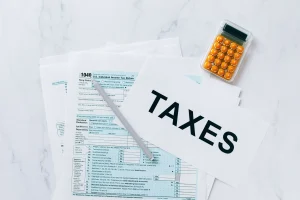
You might have heard the term tax return but are unsure what it means. Tax returns are a series of forms that show your income and how much you owe the government. Filing a return allows you to calculate your tax liability, set up a payment schedule, and request a refund if you’ve paid too much. Typically, you must file your return annually in most countries, and they are a must for anyone earning reportable income. Tax returns list your earnings, deductions, credits, and expenses, and will also help you determine how much you owe the government.
In addition to the standard deduction, you can itemize deductions to reduce your tax liability. Most business expenses, interest on loans and mortgages, and charitable contributions are deductible. You may be eligible to take advantage of itemized deductions or the standard deduction, depending on the type of tax return you’re filing. You may also be eligible to receive a tax refund, which can be larger than what you owe.
The difference between a tax refund and a tax return is important to understand. A tax refund is the money that the government sends to you after reviewing your tax return. While not everyone receives a tax refund, over three quarters of all Americans receive a tax refund. So, if you want to get the maximum refund, make sure to file your taxes as soon as possible. You’ll be glad you did.
Your taxes can include deductions for children’s education and health care, as well as Roth IRA contributions, home office expenses, business expenses, and charitable donations. However, remember that if you don’t want to receive a tax refund, you should wait until you’ve paid all your debts. The new Tax Cuts and Jobs Act may have made your refund smaller, so make sure to plan accordingly. The Tax Cuts and Jobs Act changed this rule and has resulted in smaller refunds in many taxpayers.
You can file your tax return in September and October. Even if you don’t owe the government money, it’s still a good idea to file a return. This way, registering your property is easier and more affordable. You should also consider filing your spouse’s return if you’re planning to apply for a mortgage. As a final note, you should keep track of your tax filing record for at least three years.
If you’re a business owner, you can file a tax return in case your business makes money abroad. However, it is important to disclose all sources of income, as hiding any source can land you in legal trouble. Filing your taxes in any other way could be seen as a tax evader. In addition, the Form 26AS details various types of taxes deducted from your income, and is issued under Section 203AA of the Income Tax Act, 1961.







